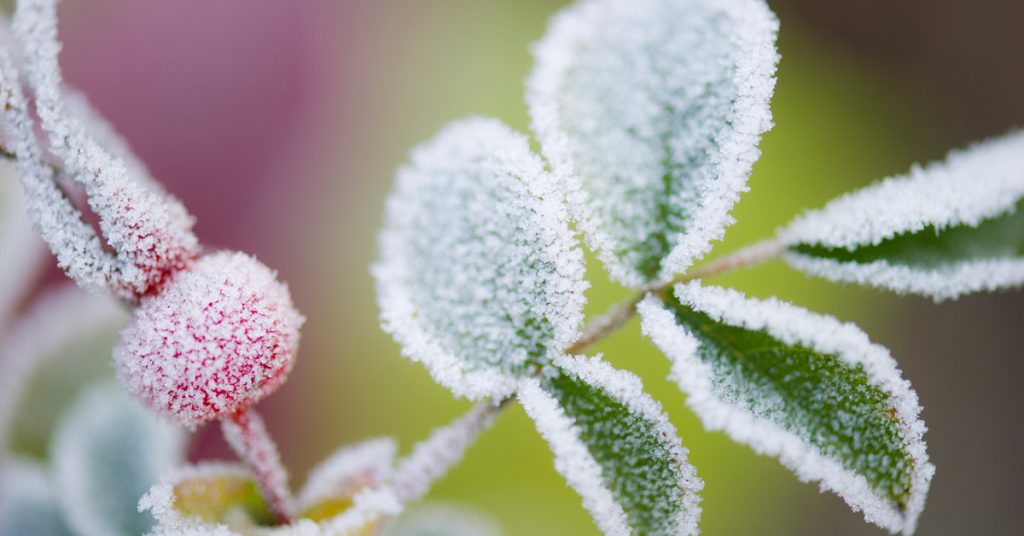If you’re someone who has suffered from allergies throughout the fall, maybe you’ve been looking forward to the first freeze of the season.
You’ve been dealing with itchy, watery eyes, nasal congestion, and other symptoms for months. If you’re counting on colder temperatures to put an end to allergies, there is good news and bad news.
The good news
In the Twin Cities, the first freeze – sometimes called a hard frost – typically occurs between October 1 and October 10. Since 1960, the Minneapolis-St. Paul airport has recorded an average first freeze date of the 6th of October. But is a freeze enough to kill off the plants and vegetation that contribute to allergies?
According to the Old Farmer’s Almanac, the classification of freeze temperatures is based on their effect on plants:
- Light freeze: 29° to 32°F—tender plants are killed.
- Moderate freeze: 25° to 28°F—widely destructive to most vegetation.
- Severe freeze: 24°F and colder—heavy damage to most plants.
While many plants can survive a light freeze, only a moderate freeze lasting several hours will put an end to the most common culprit of fall allergies, ragweed, and other pollen and mold-producing spores.
The National Weather Service recorded the first moderate freeze of 2017 in the Twin Cities on October 31. Good news for allergies, right?
The bad news
While your exposure to outdoor allergens plummets right along with the temperatures, you may not be in the clear. As you spend more time inside, with windows shut and the furnace on, less fresh air is circulated through your home. Now you’re exposed to indoor allergens.
While ragweed and grass pollens may be dead and gone, you’ll now encounter a long list of potential allergens in the comfort of your home, including:
- Dust
- Dander from pets
- Mold and mildew
- Chemicals and fragrances from cleaning products and personal care products
- Fireplace smoke
This shift from fall allergies to winter allergies often doesn’t provide a substantial break from symptoms. A concerted effort to control your exposure to the most common allergens is a must.
If you’ve found that your fall allergies are sticking around past the first freeze and you need relief, it’s time to schedule an appointment.
